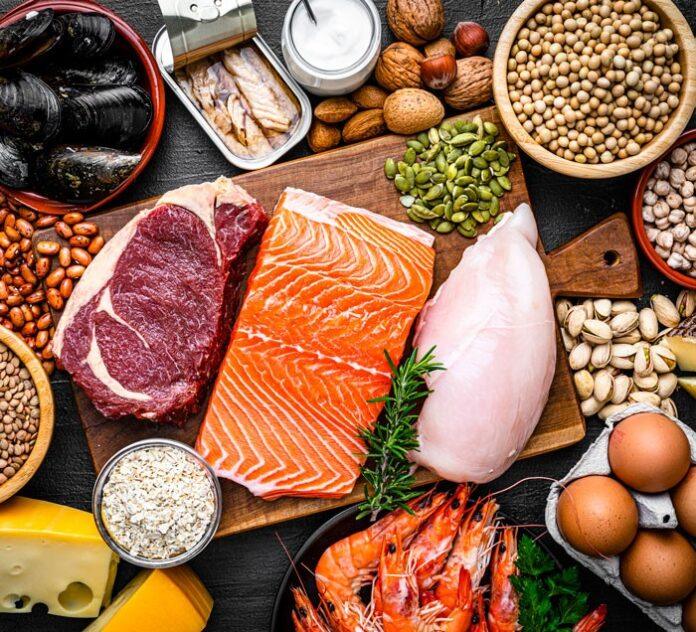“The report from Euromonitor is supported in Nigeria by the products that are sold there, including water melon, pineapple, apple, strawberry, oranges, limes, lemons, ginger, garlic, turmeric, and more. These fruits are now considered luxury items in the market.”
According to a recent analysis by Euromonitor International, the coronavirus (COVID-19) has made health and food safety a top priority, raising calls for more openness in food procurement and transportation.
According to the research, this has accelerated trends about food origins and conventional, well-known components that provide both nutrition and usefulness, encouraging a return to the basics.
It makes the case that returning to the basics also brings essential ideas to the table, such as inexpensive nutrition and accessibility in the framework of universal wellness. “Now, with disposable incomes declining due to COVID-19, this becomes crucial,” it continues.
Local sourcing is prioritized.
A resurgence of interest in locally produced goods has been accelerated, the report claims. It reads: “Since a few years ago, elder generations have been calling for the use of local products, food produced on local farms, and country of origin claims. Because it is transparent, high-quality, and safe, as well as a way to boost the local economy, the pandemic has increased interest in locally sourced food.
Since the pandemic, numerous programs have been launched to promote regional food production. One such project is “Support your locals,” a Dutch program. In the end, the goal is to support the local economy and community by assisting local food producers and promoting short and hyperlocal supply chains. Businesses like Maaltojdboxen Groningen, which provides organic produce, meat, and fruit cultivated by regional farmers in the Groningen province to customers’ doorsteps, are made possible by this program.
Both conventional and natural knowledge
It goes on to say: “Health has become a top priority for consumers, and traditional products that are naturally useful (like turmeric or ginger) and nutritious (like ancient grains like buckwheat and amaranth) are gaining popularity. As the focus shifts from treatment to prevention and the need for targeted functionality as a crucial aspect of health has increased, the idea of “food as medicine” is now more important than ever.
An angle from Nigeria
The research by Euromonitor is supported in Nigeria by the products that are sold in the country’s food market, including fruits like water melon, pineapple, apple, strawberry, oranges, limes, lemons, ginger, garlic, turmeric, and more. These fruits are now considered luxury items in the market.
In certain circumstances, prices have quadrupled or doubled. Because of the COVID-19 pandemic, people are now well-informed about the health benefits of these products. And using these foods as basic ingredients, food processing companies are creating new products. As a result, farmers are able to make more money at the farmgate.
Read Also: Dangote Applauds Tinubu’s Reforms for Boosting Private Sector Growth
Traditional methods of preventing diseases where nutrition is important are becoming more and more popular. The Health and Nutrition Survey by Euromonitor International indicates that in 2020, 48% of consumers worldwide look for traditional and natural ways to prevent disease, while 30% use over-the-counter medications.
According to the report, “natural” claims have been used by packaged food manufacturers to target this positioning in recent years. Companies that use traditional and well-known ingredients that contribute to a variety of functions will profit from the growing demand for natural and traditional solutions in relation to preventative health.
Consideration of inclusive nutrition and value reevaluation
The 2020 economic downturn in many nations, according to Euromonitor, “brings attention to affordable and accessible nutrition.” With food at the core of consumer requirements, it is a universal human right. It will be essential to make healthy food accessible in order to promote optimal nutrition for all facets of society.
Even before the pandemic, there was a growing demand for private label and reasonably priced wellness products, and the worldwide lockdowns only increased this demand. With declining discretionary incomes, this demand is anticipated to persist.
With a 5.5% market share in China’s milk formula market, Junlebao is a prime example of added-value innovation at inclusive price points. In categories like organic and formulas for newborns with specific needs that are often marketed to high-end consumers, Junlebao has introduced affordable products.
Join Television Nigerian Whatsapp Now
Join Television Nigerian Facebook Now
Join Television Nigerian Twitter Now
Join Television Nigerian YouTUbe Now





